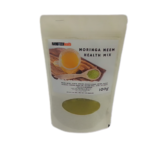IN THIS ARTICLE
Introduction
Winter is coming, and we’re not talking about a TV show plot twist. We’re talking about the real, bone-chilling cold that sweeps across South Africa every year, bringing with it a host of unwelcome guests—flu, colds, and other ailments that can knock you off your feet.
But what if you could fortify your body’s defenses to not just survive but thrive this winter? Imagine not having to worry about catching every bug that goes around, being able to enjoy the winter months with vitality and vigor. Sounds good, right.
That’s where immune-boosting supplements come in. These little powerhouses can fill in the nutritional gaps that even the most balanced diets might miss, giving your immune system that extra edge it needs to fend off winter illnesses. We’re talking about scientifically-backed, tried-and-true supplements that can make a real difference in how you feel this winter.
So, are you ready to give your immune system the boost it deserves? Keep reading to discover the top 5 best supplements for winter you should consider in South Africa. Your future, healthier self will thank you.
Why Supplements?
You might be thinking, “I eat pretty well, exercise regularly, and get enough sleep. Do I really need supplements?” It’s a valid question. After all, the idea of taking a pill or a capsule every day might seem like overkill if you’re already leading a healthy lifestyle. However, supplements serve a crucial role that often goes unnoticed, especially when it comes to bolstering your immune system for the winter months in South Africa. Here’s why:

Filling Nutritional Gaps
Even the most meticulously planned diets can fall short in providing all the essential nutrients your body needs. Factors like soil depletion, food processing, and cooking methods can reduce the nutrient content in the food we eat. Additionally, the hustle and bustle of modern life can make it challenging to eat a balanced diet every single day. Supplements act as a safety net, filling in these nutritional gaps to ensure your body has everything it needs to function optimally.
Seasonal Nutrient Deficiency
South Africa’s winter months can be harsh, with less sunlight and shorter days. This can lead to a deficiency in Vitamin D, a crucial component for immune health. While some foods are fortified with Vitamin D, it’s often not enough to meet the body’s requirements, making supplementation a practical choice.
Targeted Immune Support
Certain nutrients and herbs are known for their immune-boosting properties. For example, Vitamin C, Zinc, and Echinacea have been shown to enhance immune function, making them ideal candidates for supplementation during flu season. By taking these supplements, you’re giving your immune system targeted support to fend off infections more effectively.
Bioavailability and Absorption
Not all nutrients are easily absorbed from food. Factors like age, gut health, and even genetic predispositions can affect how well your body absorbs nutrients. High-quality supplements are often formulated to enhance bioavailability, ensuring that your body can easily absorb and utilize the nutrients.
Convenience and Consistency
Let’s face it; life gets busy. Between work, family, and social commitments, it’s not always feasible to prepare nutrient-dense meals every day. Supplements offer a convenient way to consistently provide your body with the nutrients it needs, regardless of how hectic your schedule gets.
A Complement, Not a Replacement
It’s essential to note that supplements are meant to complement a balanced diet, not replace it. They should be used in conjunction with a healthy lifestyle that includes a varied diet, regular exercise, and adequate sleep. Always consult a healthcare professional before starting any new supplement regimen, especially if you have pre-existing health conditions or are taking other medications.
By understanding the role that supplements play in filling nutritional gaps, offering targeted immune support, and providing a convenient way to maintain consistent nutrient intake, you can make an informed decision about incorporating them into your winter wellness strategy. Given the unique challenges that winter in South Africa presents, supplements can be a valuable addition to your health arsenal.
Vitamin C
When it comes to immune health, Vitamin C is often the first nutrient that comes to mind. It’s been the subject of numerous studies and has a long-standing reputation for boosting the immune system. But what makes it so special, and how can you make the most of it, especially during the harsh winter months in South Africa? Let’s dive in.

The Science Behind Vitamin C and Immunity
Vitamin C, also known as ascorbic acid, is a water-soluble vitamin that plays a vital role in various bodily functions. One of its most celebrated roles is its ability to enhance the immune system. Here’s how:
- Stimulates White Blood Cell Production: Vitamin C is known to stimulate the production and function of white blood cells, particularly lymphocytes and phagocytes, which help protect the body against infections.
- Antioxidant Properties: As an antioxidant, Vitamin C helps fight off free radicals in the body. Free radicals can damage cells and contribute to illness, so having an antioxidant on your side is a big win for immune health.
- Supports the Skin’s Defense System: Vitamin C is also essential for producing collagen, a protein that helps wounds heal and maintains the integrity of the skin, one of the body’s first lines of defense against pathogens.
- Enhances Iron Absorption: Iron is another nutrient crucial for immune function. Vitamin C enhances the body’s ability to absorb plant-based iron, further contributing to its immune-boosting properties.
Local Sources of Vitamin C
In South Africa, you’re in luck when it comes to natural sources of Vitamin C. Fruits like oranges, grapefruits, and naartjies (tangerines) are abundant and rich in this essential vitamin. Vegetables like bell peppers, spinach, and kale also contain Vitamin C and can easily be incorporated into a balanced diet.
Supplement Brands and Recommendations
While getting Vitamin C from food is ideal, supplements can provide a more concentrated source, especially when you’re aiming to boost your immune system for winter. Trusted local brands like Vital and Solal offer high-quality Vitamin C supplements in various forms, including tablets, capsules, and even effervescent options for those who prefer a tasty drink.
Dosage
The Recommended Dietary Allowance (RDA) for Vitamin C varies by age and life stage, but for most adults, it’s around 65 to 90 mg per day, with an upper limit of 2,000 mg per day. However, during times when your immune system needs a boost, like in winter or during a cold, some healthcare professionals recommend higher doses. Always consult with a healthcare provider for personalized advice.
A Staple for Immune Health
Vitamin C is more than just a popular nutrient; it’s a cornerstone for immune health. Its role in stimulating white blood cell production, acting as an antioxidant, and even supporting skin and iron absorption makes it a multi-faceted tool in your immune-boosting arsenal. Whether you choose to get it from the rich variety of fruits and vegetables available in South Africa or opt for a supplement, make sure Vitamin C is part of your strategy to stay healthy this winter.
Zinc
While Vitamin C often steals the spotlight when it comes to immune health, Zinc is another essential mineral that deserves your attention, especially during the challenging winter months in South Africa. Often underestimated, Zinc plays a multifaceted role in maintaining a robust immune system. Let’s delve into why this mineral is a must-have in your winter wellness toolkit.

The Role of Zinc in Immune Function
Zinc is a trace element that is necessary for a healthy immune system. A lack of zinc can make a person more susceptible to disease and illness, underscoring its importance. Here are some key ways Zinc contributes to immune health:
- Cellular Response: Zinc is crucial for the development and function of many types of immune cells, including neutrophils and natural killer cells. These cells are frontline defenders against pathogens.
- Anti-Inflammatory Properties: Chronic inflammation can weaken the immune system. Zinc acts as an anti-inflammatory agent, helping to balance the immune response.
- Barrier Function: Zinc helps maintain the integrity of the skin and mucous membranes, serving as a physical barrier against pathogens.
- Antioxidant Defense: Like Vitamin C, Zinc also acts as an antioxidant, neutralizing free radicals that can interfere with immune function.
Recommended Dosage and Brands
The Recommended Dietary Allowance (RDA) for Zinc varies by age, sex, and life stage. For adult men, it’s 11 mg per day, and for adult women, it’s 8 mg per day. During times of increased need, such as the winter months when immune challenges are more prevalent, some healthcare providers recommend slightly higher doses.
In South Africa, you can find quality Zinc supplements from reputable brands like Clicks and Dis-Chem. These often come in various forms, including Zinc gluconate, Zinc citrate, and Zinc picolinate, which have different absorption rates. Always consult a healthcare provider for personalized advice on which form and dosage are right for you.
Local Foods Rich in Zinc
If you prefer to get your nutrients from food, you’re in luck. Foods rich in Zinc include red meat, poultry, and fish. For vegetarians or those looking to diversify their sources, nuts, legumes, and whole grains are also good options. Oysters are particularly high in Zinc, although they may be more of a delicacy than a staple in your diet.
Don’t Overlook Zinc
While it may not be as famous as Vitamin C, Zinc is an equally vital player in immune health. Its role in cellular response, anti-inflammatory action, barrier function, and antioxidant defense makes it a comprehensive tool for boosting your immune system. Given the unique challenges of winter in South Africa, including Zinc in your supplement regimen or diet can offer a significant advantage in staying healthy.
Colloidal Silver
Colloidal Silver has been gaining attention as a versatile supplement with antibiotic, antiviral, and antifungal properties. Especially during the winter months in South Africa, when the immune system is under siege from various pathogens, having an extra line of defense can be invaluable. But what exactly is Colloidal Silver, and how can it assist in strengthening your immune system? Let’s explore.

What is Colloidal Silver?
Colloidal Silver is a liquid solution where submicroscopic silver particles are suspended in a liquid base, usually distilled water. The term “colloidal” refers to these tiny silver particles that are evenly distributed throughout the liquid. Because of their small size, these silver particles can penetrate cells, making them effective in combating various pathogens.
How Does It Work?
The exact mechanisms by which Colloidal Silver works are still the subject of research, but it is believed to interfere with the enzymes that allow bacterial, viral, and fungal cells to utilize oxygen, effectively suffocating them. This makes it a broad-spectrum supplement that can assist in combating a variety of minor illnesses.
How to Use Colloidal Silver
One of the advantages of Colloidal Silver is its versatility in administration:
- Orally: It can be taken orally to manage symptoms of colds and flu.
- Eye Drops: For eye allergies, conjunctivitis, or keratitis, it can be used as eye drops.
- Nasal Spray: For sinus issues, it can be administered as a nasal spray.
- Topical Application: It can be sprayed on wounds and does not sting or burn.
- Gargle: For minor throat and dental irritations, it can be used as a gargle before swallowing.
Taste and Texture
Colloidal Silver is almost tasteless, with just a slight mineral taste, making it easy to administer without the unpleasantness associated with some other supplements or medications.
Precautions and Recommendations
While Colloidal Silver is generally considered safe for short-term use, it’s crucial to consult a healthcare provider for personalized advice, especially if you’re pregnant, nursing, or taking other medications. Overuse of Colloidal Silver can lead to a condition called argyria, a permanent bluish-gray discoloration of the skin.
What’s in the Box
When you purchase Colloidal Silver, you’ll typically receive a 200ml bottle, which can be used in various ways as mentioned above.
A Multi-Functional Supplement for Winter Wellness
Colloidal Silver offers a multi-pronged approach to boosting your immune system, especially useful during the winter months when you’re more susceptible to illnesses. Its antibiotic, antiviral, and antifungal properties make it a versatile option for those looking to fortify their immune defenses. However, as with any supplement, it’s essential to consult a healthcare provider for personalized advice tailored to your specific needs.
Nanotech Health Moringa Neem Mix
In the quest for immune-boosting supplements, especially during the challenging winter months in South Africa, it’s easy to overlook the natural powerhouses that have been used for centuries in traditional medicine. One such potent blend is the Nanotech Health Moringa Neem Mix. This 100g mix combines the nutritional might of Moringa, often referred to as the “miracle tree,” with the immune-supporting properties of Neem, a staple in Ayurvedic medicine. Let’s delve into why this blend deserves a spot in your daily wellness routine.

What’s in the Mix?
Moringa: The “Miracle Tree”
Moringa is a plant native to parts of Africa and Asia and is known for its highly nutritious profile. It’s packed with:
- Vitamins: Such as Vitamin A, C, and E, which are essential for immune function.
- Minerals: Including calcium and iron, which support overall health.
- Antioxidants: Such as quercetin and chlorogenic acid, which help fight free radicals in the body.
Neem: The Ayurvedic Marvel
Neem is a tree native to the Indian subcontinent and has been used in Ayurvedic medicine for thousands of years. It is known for its:
- Antibacterial Properties: Which help fight off bacterial infections.
- Antiviral Properties: That can assist in combating viral infections.
- Immune-Boosting Qualities: That help maintain a healthy immune system.
How to Use the Moringa Neem Mix
The 100g mix provides a convenient way to incorporate these beneficial plants into your daily routine. You can:
- Add it to Smoothies: For a nutritional boost.
- Sprinkle on Salads: For added flavor and health benefits.
- Mix with Water: For a simple, quick health drink.
Why Choose This Blend?
- Nutrient-Dense: Both Moringa and Neem are nutrient powerhouses, providing a wide range of vitamins, minerals, and antioxidants.
- Immune Support: The antiviral and antibacterial properties of Neem, combined with the immune-boosting vitamins in Moringa, make this blend a strong ally during flu season.
- Convenience: The 100g mix offers an easy and convenient way to get the benefits of both plants without the hassle of preparation.
- Versatility: The mix can be used in various ways, making it easy to incorporate into your daily diet.
A Blend Worth Trying
If you’re looking to bolster your immune system and improve your overall health, the Nanotech Health Moringa Neem Mix offers a potent combination of nutrients and immune-boosting properties. Its convenience and versatility make it an excellent addition to your winter wellness regimen. So why not give it a try and experience the myriad health benefits that these ancient plants have to offer?
Echinacea
When it comes to natural remedies for boosting the immune system, Echinacea often tops the list. This herb, native to North America, has been used for centuries by indigenous peoples and is now gaining popularity worldwide, including in South Africa. But what makes Echinacea such a sought-after herb, especially during the winter months when the immune system is under assault? Let’s explore.

Understanding Echinacea and Its Immune-Boosting Properties
Echinacea is a flowering plant that belongs to the daisy family. There are several species, but the most commonly used for medicinal purposes are Echinacea purpurea, Echinacea angustifolia, and Echinacea pallida. The plant’s roots and above-ground parts are used to make teas, extracts, and capsules.
How Does It Work?
- White Blood Cell Activation: Echinacea is known to stimulate the activity of white blood cells, which are crucial for fighting off infections.
- Anti-Inflammatory Effects: The herb has anti-inflammatory properties that help manage symptoms of colds and flu, such as sore throat and cough.
- Antiviral and Antibacterial: Some studies suggest that Echinacea can inhibit the replication of viruses and bacteria, although more research is needed in this area.
Popularity in South Africa
In South Africa, Echinacea has gained a following, especially among those who prefer natural remedies. The herb is widely available in health stores and pharmacies, often in various forms:
- Teas: Echinacea teas are popular for their soothing effects and are often consumed at the onset of cold symptoms.
- Capsules and Tablets: These offer a more concentrated form of Echinacea and are convenient for those on the go.
- Tinctures and Extracts: These liquid forms can be added to water or taken directly and are often chosen for quicker absorption.
Dosage and Recommendations
The dosage of Echinacea can vary depending on the form you’re using and the specific product. It’s generally recommended to follow the instructions on the packaging and to consult a healthcare provider for personalized advice, especially if you’re pregnant, nursing, or taking other medications.
Precautions
While Echinacea is generally considered safe for short-term use, it can cause allergic reactions in some people, especially those who are allergic to plants in the daisy family. It’s also not recommended for people with autoimmune diseases, as it stimulates the immune system.
A Natural Ally for Winter Wellness
Echinacea offers a multi-faceted approach to boosting your immune system. Its ability to activate white blood cells, coupled with its anti-inflammatory, antiviral, and antibacterial properties, makes it a comprehensive tool for enhancing your immune defenses. Given the unique challenges of winter in South Africa, including Echinacea in your supplement regimen can provide a significant advantage in staying healthy. However, as with any supplement, it’s essential to consult a healthcare provider for personalized advice tailored to your specific needs.
Probiotics
When we think of bacteria, we often think of germs that cause diseases. But did you know that your body is home to trillions of good bacteria that actually help you stay healthy? These beneficial bacteria, known as probiotics, are especially crucial for maintaining a strong immune system, particularly during the winter months in South Africa. Let’s delve into the fascinating world of probiotics and why they deserve a spot in your winter wellness arsenal.
The Gut-Immune Connection
Believe it or not, a significant portion of your immune system resides in your gut. The gastrointestinal tract is home to a complex ecosystem of bacteria, viruses, and fungi, collectively known as the gut microbiota. This microbiota plays a vital role in your immune health for several reasons:

- Barrier Function: The good bacteria in your gut form a protective barrier that prevents harmful pathogens from entering the bloodstream.
- Immune Regulation: Probiotics interact with immune cells to regulate their function, ensuring a balanced immune response.
- Nutrient Absorption: A healthy gut microbiota enhances the absorption of essential nutrients, including those that are crucial for immune function.
Types of Probiotics
There are several strains of probiotics, each with its unique benefits. Some of the most commonly used for immune support include:
- Lactobacillus acidophilus: Known for supporting gut health and enhancing the immune response.
- Bifidobacterium bifidum: Helps maintain the integrity of the gut lining and is often used to treat conditions like IBS.
- Saccharomyces boulardii: A yeast probiotic often used to treat and prevent diarrhea.
Available Probiotic Supplements in South Africa
In South Africa, you can find a wide range of probiotic supplements to suit various needs:
- Capsules: Brands like Probiflora and Reuterina offer high-quality probiotic capsules that are convenient for daily use.
- Probiotic-Rich Foods: Foods like yogurt, kefir, and fermented vegetables are natural sources of probiotics and are readily available in most grocery stores.
- Powders and Liquids: For those who prefer not to take capsules, probiotic powders and liquids offer an alternative that can be mixed with water or food.
Dosage and Recommendations
The dosage of probiotics can vary widely depending on the strain and the specific product. It’s generally recommended to follow the instructions on the packaging and to consult a healthcare provider for personalized advice, especially if you’re pregnant, nursing, or taking other medications.
A Pillar of Immune Health
Probiotics offer a unique and effective way to boost your immune system from the inside out. Their role in maintaining a healthy gut barrier, regulating immune function, and enhancing nutrient absorption makes them a comprehensive tool for immune support. Given the unique challenges of winter in South Africa, incorporating probiotics into your daily routine can be a game-changer in staying healthy. However, as with any supplement, it’s essential to consult a healthcare provider for personalized advice tailored to your specific needs.
Conclusion
So, you’ve made it to the end of this comprehensive guide on boosting your immune system this winter. But before you go, there’s one more game-changing product you absolutely need to know about.
Imagine a single, affordable product that combines the nutritional powerhouse of Moringa with the immune-boosting properties of Neem. A blend so potent, it’s like having a personal bodyguard against winter illnesses. Intrigued?
Meet the Nanotech Health Moringa Neem Mix 100g. This blend is not just another supplement; it’s a synergistic combination of two ancient plants known for their health benefits. Moringa, packed with vitamins, minerals, and antioxidants, meets Neem, a traditional Ayurvedic herb with antibacterial and antiviral properties. Together, they form a robust defense system to help you navigate through the winter months in South Africa. And the best part? This incredible mix is priced at just R59.00. That’s right—a small investment for a winter of wellness.
A HEALTHY MIX
Nanotech Health Moringa Mix
Don’t let this winter catch you off guard. Take action now by adding Nanotech Health Moringa Neem Mix to your daily routine. Your immune system will thank you, and you’ll experience the numerous health benefits that these ancient plants have to offer. Click the link above to purchase your 100g mix today and make this winter your healthiest yet!
Frequently Asked Questions: best Supplements for winter
You’ve just read through a comprehensive guide on how to boost your immune system this winter, especially tailored for the unique conditions in South Africa. But you may still have some questions. That’s why we’ve compiled this FAQ section to address some of the most common queries people have about immune-boosting supplements and winter wellness. Let’s dive in.
What vitamins boost the immune system in winter?
Vitamin C, Vitamin D, and Zinc are among the most important vitamins and minerals for boosting the immune system in winter. These nutrients are known for their ability to enhance immune function and provide added protection against colds and flu.
How can I boost my immune system in winter naturally?
In addition to taking supplements, you can boost your immune system naturally by eating a balanced diet rich in fruits and vegetables, exercising regularly, getting adequate sleep, and staying hydrated. Foods like garlic, ginger, and honey also have natural immune-boosting properties.
How can I boost my immune system quickly?
For quick immune support, consider taking high-quality supplements like Vitamin C and Zinc. Probiotics can also provide rapid benefits by improving gut health, which is closely linked to immune function.
What are the best vitamins for winter colds?
Vitamin C is often considered the go-to vitamin for treating winter colds due to its antioxidant properties. Zinc is also effective in reducing the duration and severity of cold symptoms.
Is Echinacea effective for boosting the immune system?
Yes, Echinacea is known for its ability to stimulate white blood cell activity and has anti-inflammatory, antiviral, and antibacterial properties, making it a comprehensive tool for immune support.
Are probiotics good for the immune system?
Absolutely. Probiotics help maintain a healthy gut microbiota, which plays a crucial role in immune regulation and nutrient absorption.
Can I take Vitamin C and Zinc together?
Yes, Vitamin C and Zinc can be taken together and often complement each other in supporting immune function.
What are the side effects of taking too much Vitamin C?
Taking too much Vitamin C can lead to diarrhea, nausea, and stomach cramps. The upper limit for adults is 2,000 mg per day.
How does the Nanotech Health Moringa Neem Mix boost the immune system?

The Moringa Neem Mix combines the nutritional richness of Moringa with the antibacterial and antiviral properties of Neem, providing a robust defense system for your immune health.
Is the Nanotech Health Moringa Neem Mix suitable for vegetarians?
Yes, the Moringa Neem Mix is plant-based and suitable for vegetarians.
Can children take immune-boosting supplements?
While some supplements are formulated for children, it’s essential to consult a healthcare provider for personalized advice tailored to a child’s specific needs.
Where can I buy high-quality immune-boosting supplements in South Africa?
High-quality supplements for winter can be found in health stores, pharmacies, and reputable online retailers. Always choose products from trusted brands to ensure you’re getting the best quality.
We hope this FAQ section has answered some of your most pressing questions about boosting your immune system this winter. Remember, while supplements can provide valuable support, they should be used in conjunction with a balanced diet, regular exercise, and adequate sleep for optimal results. Always consult a healthcare provider for personalized advice, especially if you have pre-existing health conditions or are taking other medications. Stay healthy this winter!
Additional Resources
To further assist you in your quest for a healthier immune system this winter, especially in the unique climate of South Africa, we’ve compiled a list of additional resources. These sources provide valuable insights into various aspects of immune health, from scientific studies to practical guides on supplement usage.
- Harvard Health – How to Boost Your Immune System: An in-depth article that explores various ways to strengthen your immune system.
- WebMD – Immune System Boosters and Busters: This resource provides a balanced view of what can help or hinder your immune system.
- Mayo Clinic – Zinc: A scientific overview of Zinc, its benefits, and recommended dosages.
- Healthline – Probiotics and Immune Health: An article that delves into the science behind how probiotics can boost your immune system.
- NCBI – Echinacea and Immune Function: A scientific paper that explores the effects of Echinacea on the immune system.
- Medical News Today – Vitamin C and Immunity: This article discusses the role of Vitamin C in immune function and how to get it from your diet.
- Nutrition.org – The Role of Gut Microbiota in Immunity: A scientific article that delves into the complex relationship between gut health and immunity.
- Ayurvedic Medicine – Neem and Immunity: An article that discusses the traditional uses of Neem in Ayurvedic medicine, including its immune-boosting properties.
- Moringa Oleifera – The Miracle Tree: A comprehensive guide to the nutritional benefits of Moringa.
- South African Journal of Clinical Nutrition – Dietary Supplements and Immune Function in South Africa: A localized study that explores the role of dietary supplements in immune health among South Africans.
These resources offer a wealth of information that can help you make informed decisions about your immune health this winter. Whether you’re looking for scientific validation, practical tips, or localized information, these articles and studies have got you covered.


